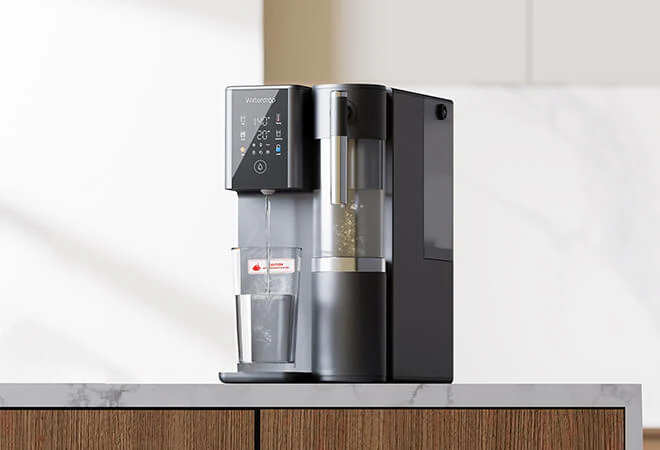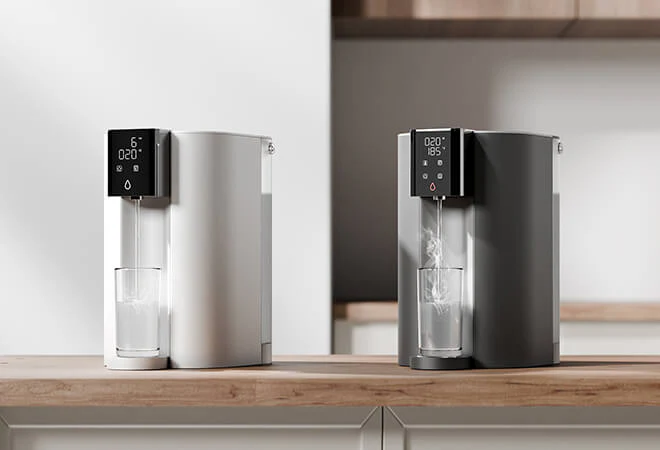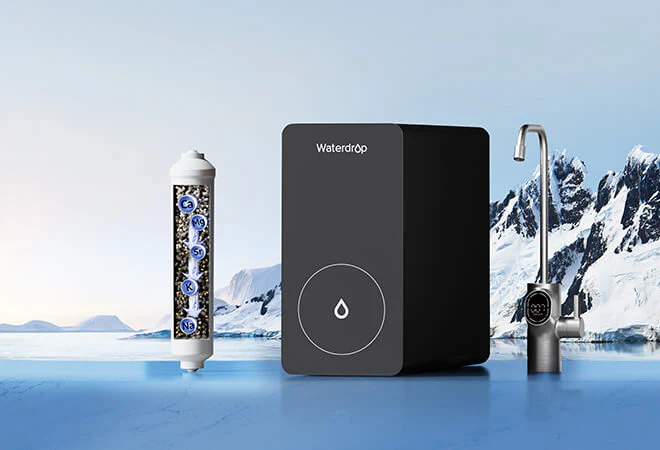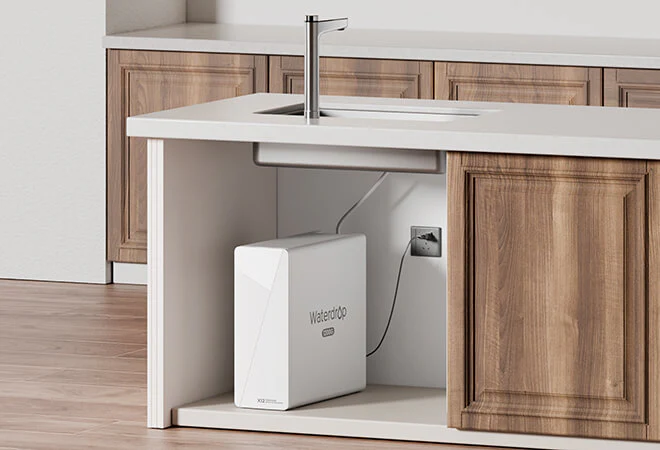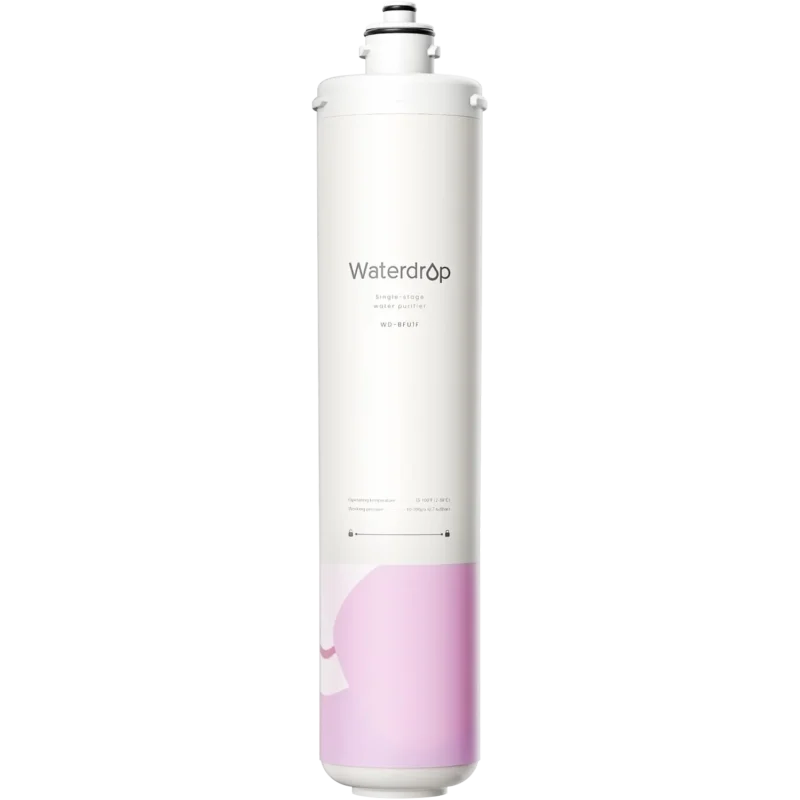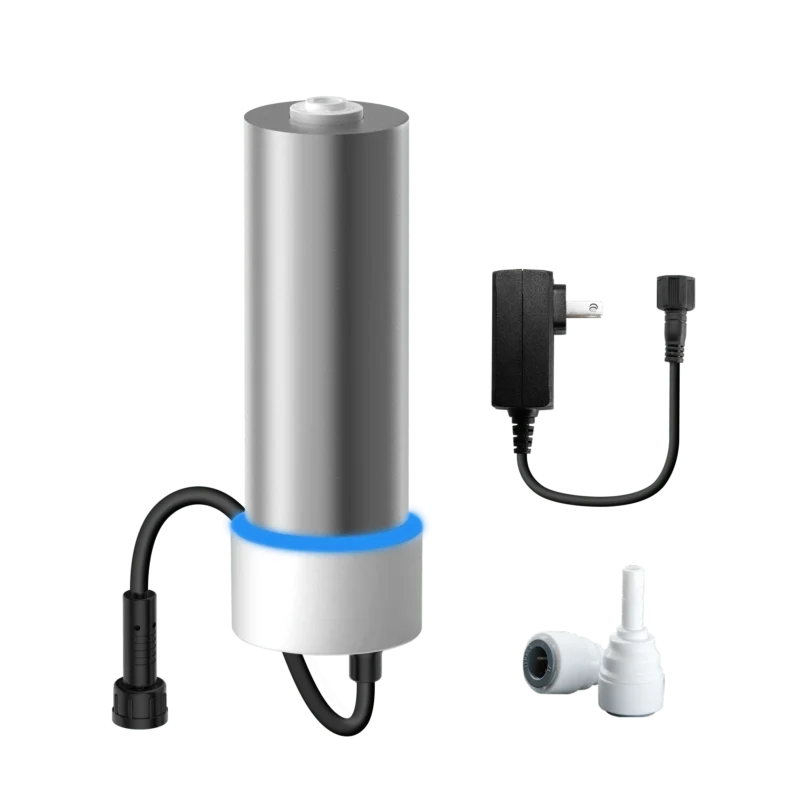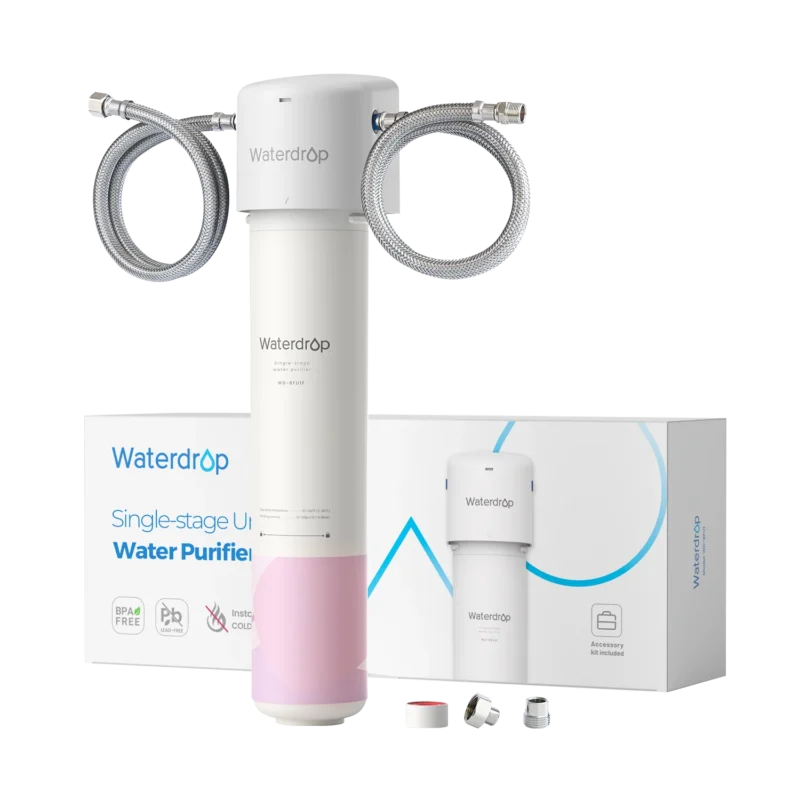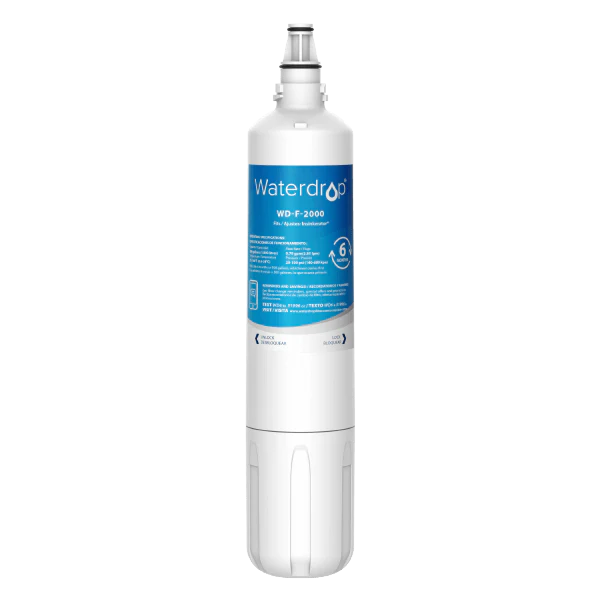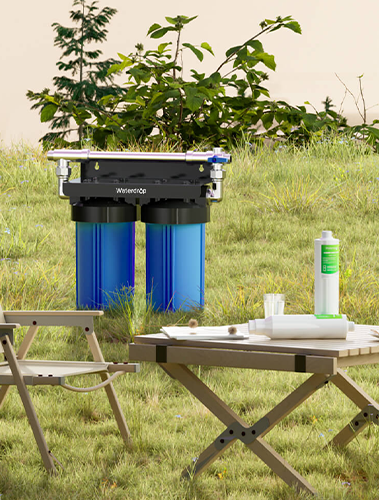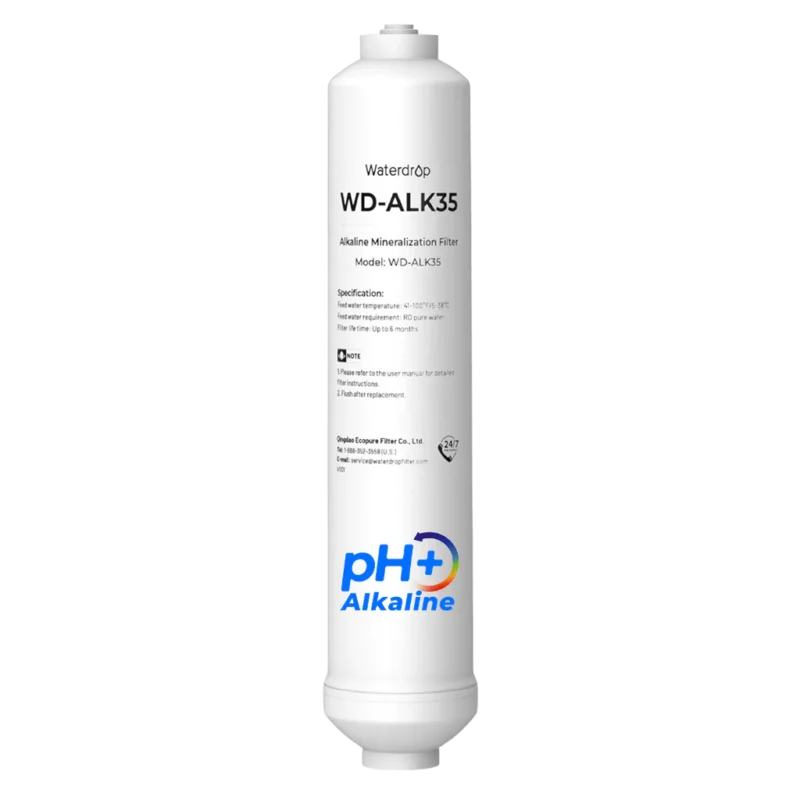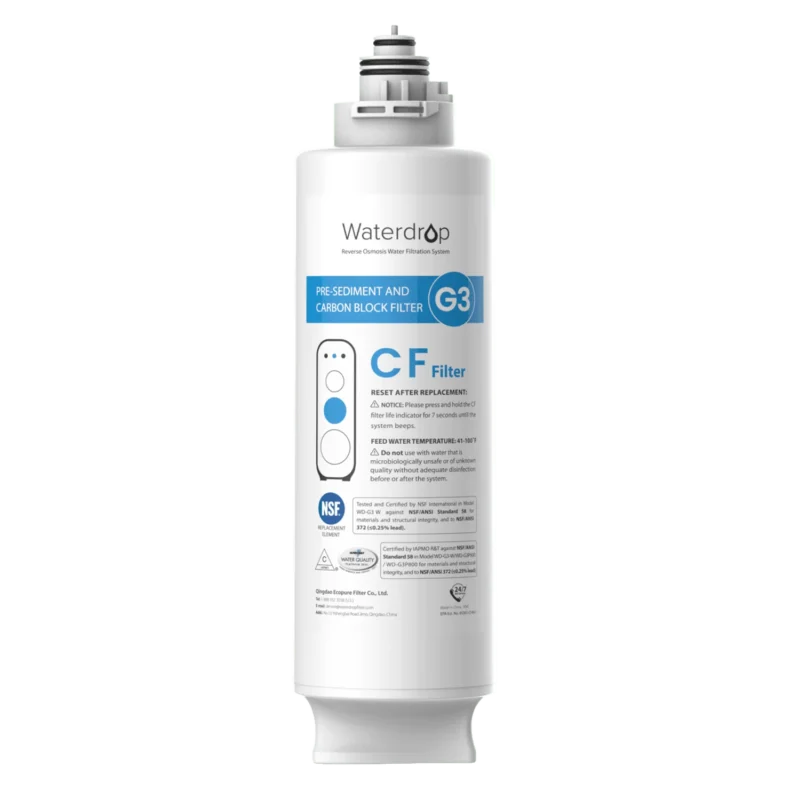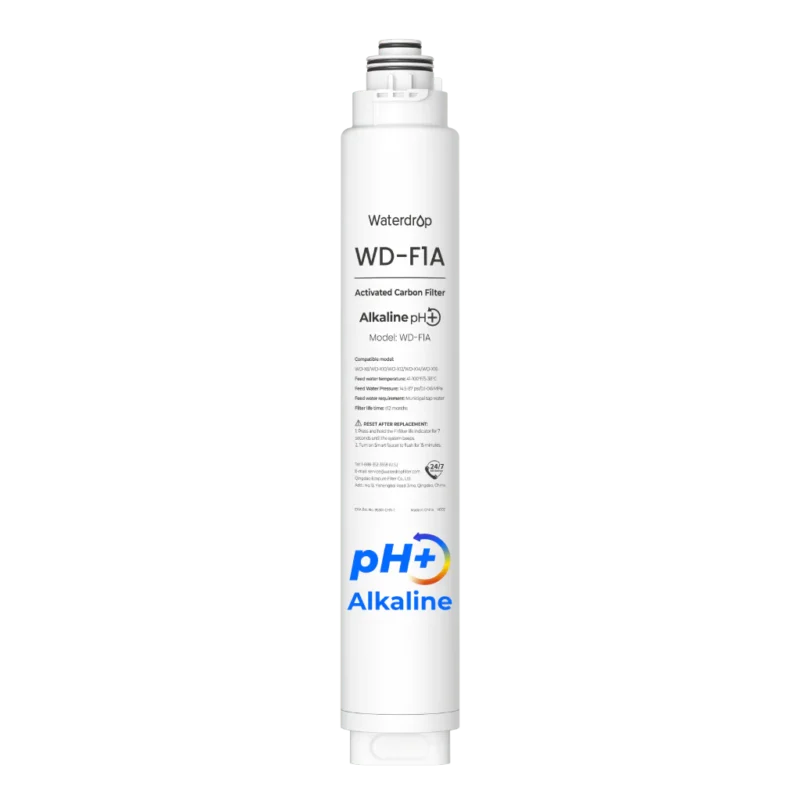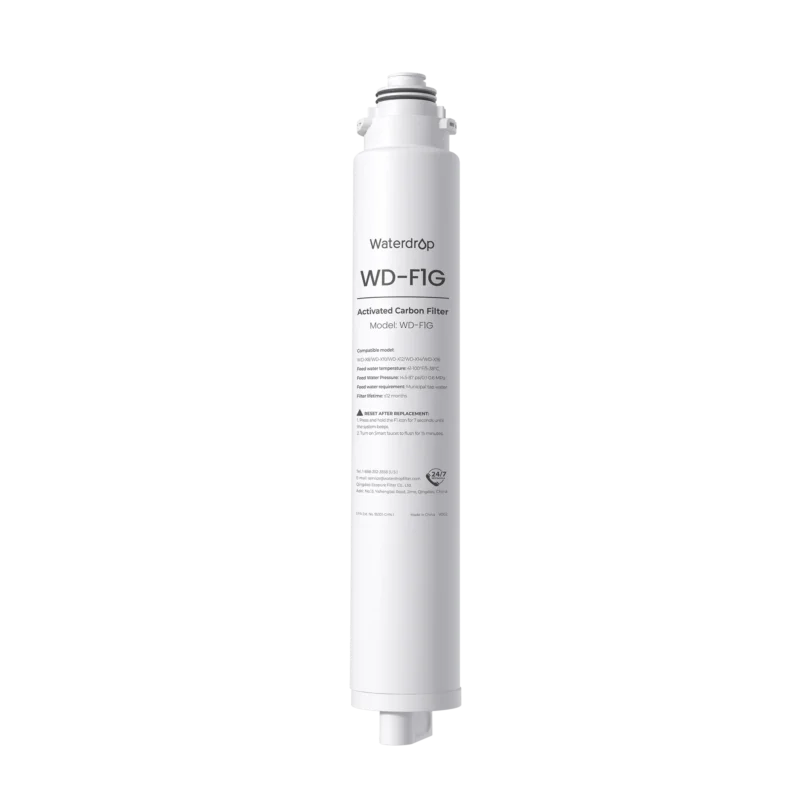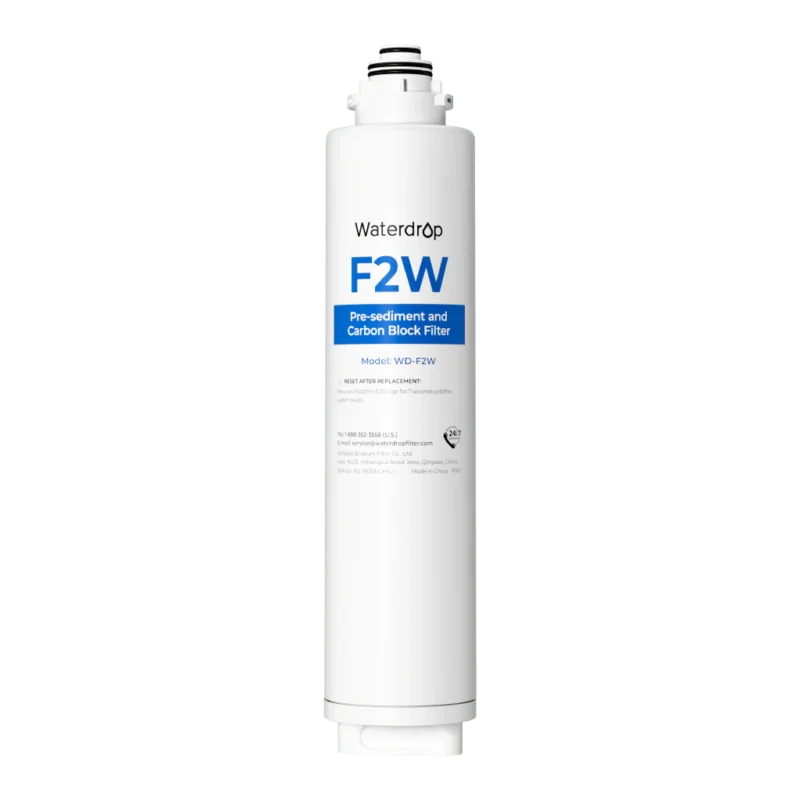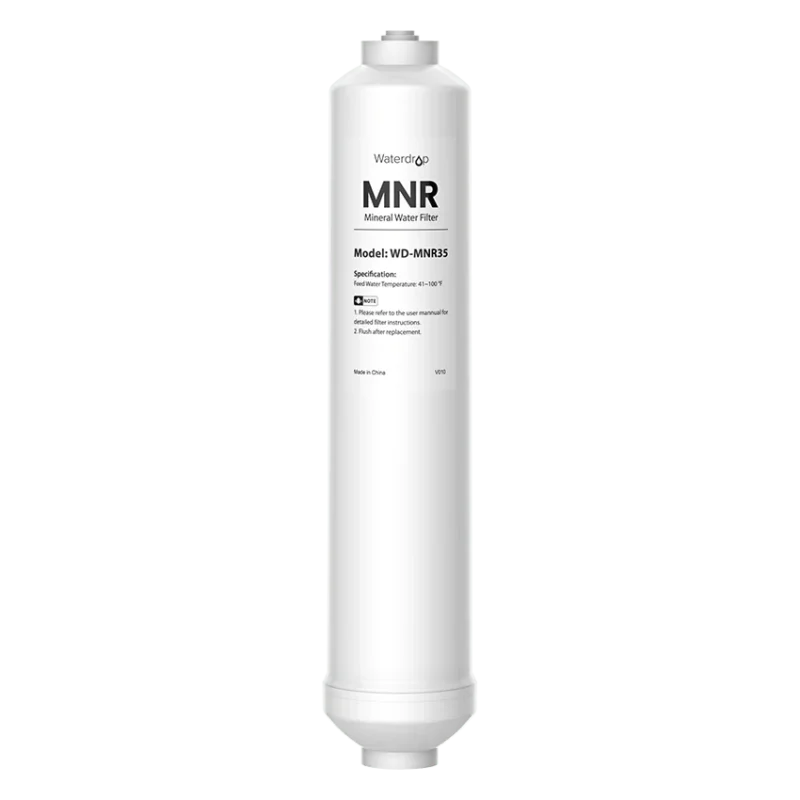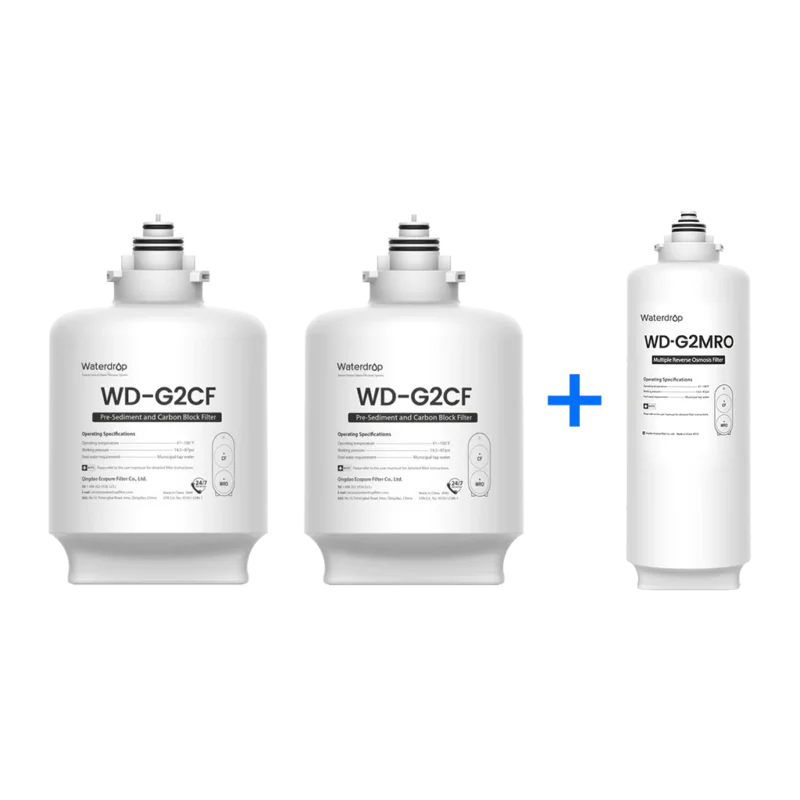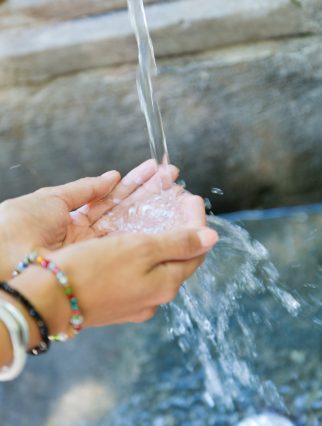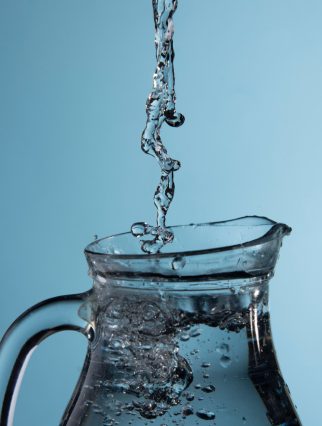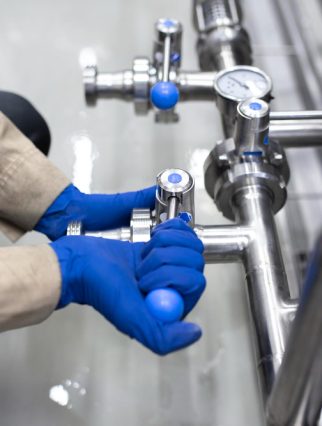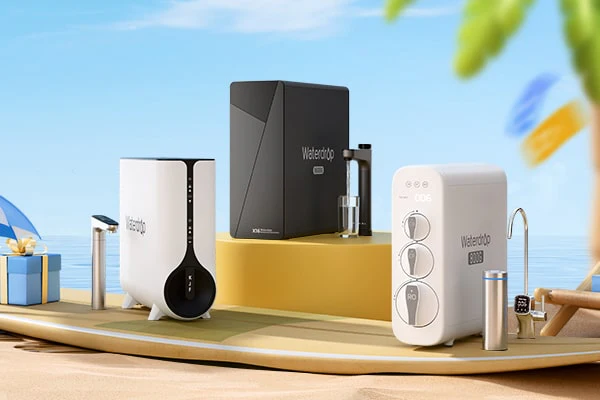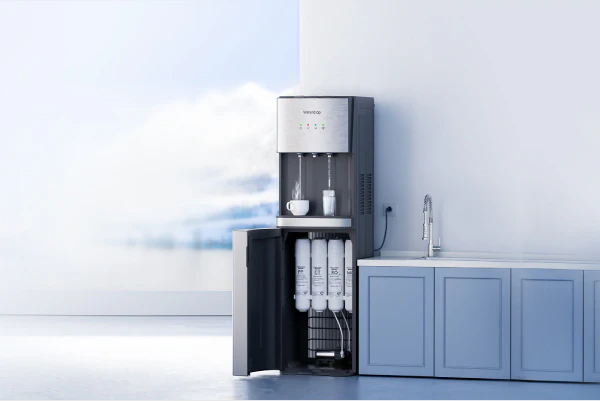- RO Systems
Featured Series Undersink RO
Featured Series Countertop RO
Featured Series Alkaline RO
Featured Series Hot and Cold RO
Featured Series RO Combo Kits
- Undersink
Featured Ultrafiltration System
Waterdrop UV Water Sterilizer | Suitable for RO Systems and Undersink Water Filters
$129.99El precio original era: $129.99.$90.99El precio actual es: $90.99.Waterdrop UA-5Y 5 Years Under Sink Water Filter System
$139.99El precio original era: $139.99.$99.99El precio actual es: $99.99.Waterdrop Skincare Water Softening System – Softens Skin & Hair (Includes 1 Filter)
$89.99El precio original era: $89.99.$80.99El precio actual es: $80.99. - Countertop
-
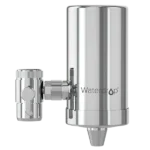 Waterdrop Faucet Water Filter System Stainless Steel FC-06
Waterdrop Faucet Water Filter System Stainless Steel FC-06
$34.99El precio original era: $34.99.$28.99El precio actual es: $28.99. -
 Waterdrop Electric Water Filter Pitcher ED06W, 200-Gallon Capacity, Soft Water System
Waterdrop Electric Water Filter Pitcher ED06W, 200-Gallon Capacity, Soft Water System
$39.99El precio original era: $39.99.$29.99El precio actual es: $29.99. -
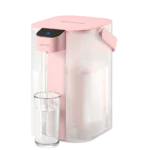 Waterdrop Electric Water Filter, ED01 Countertop Water Filtration System
Waterdrop Electric Water Filter, ED01 Countertop Water Filtration System
$49.99El precio original era: $49.99.$39.99El precio actual es: $39.99. -
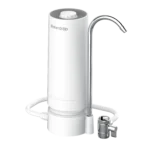 Waterdrop Countertop Dispensing Faucet Water Filter CTF-05
Waterdrop Countertop Dispensing Faucet Water Filter CTF-05
$49.99El precio original era: $49.99.$39.99El precio actual es: $39.99.
-
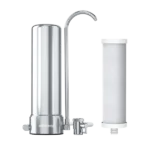 Waterdrop Countertop Faucet Water Filter System CTF-01 with Replacement Filter
Waterdrop Countertop Faucet Water Filter System CTF-01 with Replacement Filter
$110.99El precio original era: $110.99.$97.99El precio actual es: $97.99. -
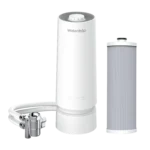 Waterdrop Faucet Water Filter CTF-06 & Cartridge CFF-03 Set
Waterdrop Faucet Water Filter CTF-06 & Cartridge CFF-03 Set
$88.99El precio original era: $88.99.$68.99El precio actual es: $68.99. -
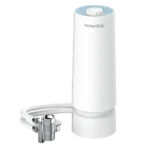 Ultrafiltration System Water Filter for Sink Faucet CTF-08
Ultrafiltration System Water Filter for Sink Faucet CTF-08
$69.99El precio original era: $69.99.$59.99El precio actual es: $59.99. -
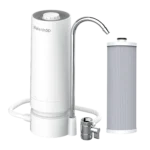 Waterdrop Water Faucet Filter CTF-05 & Replacement Filter CFF-03
Waterdrop Water Faucet Filter CTF-05 & Replacement Filter CFF-03
$79.99El precio original era: $79.99.$59.99El precio actual es: $59.99.
-
- Bottleless Water Cooler
Featured Mineral RO
-
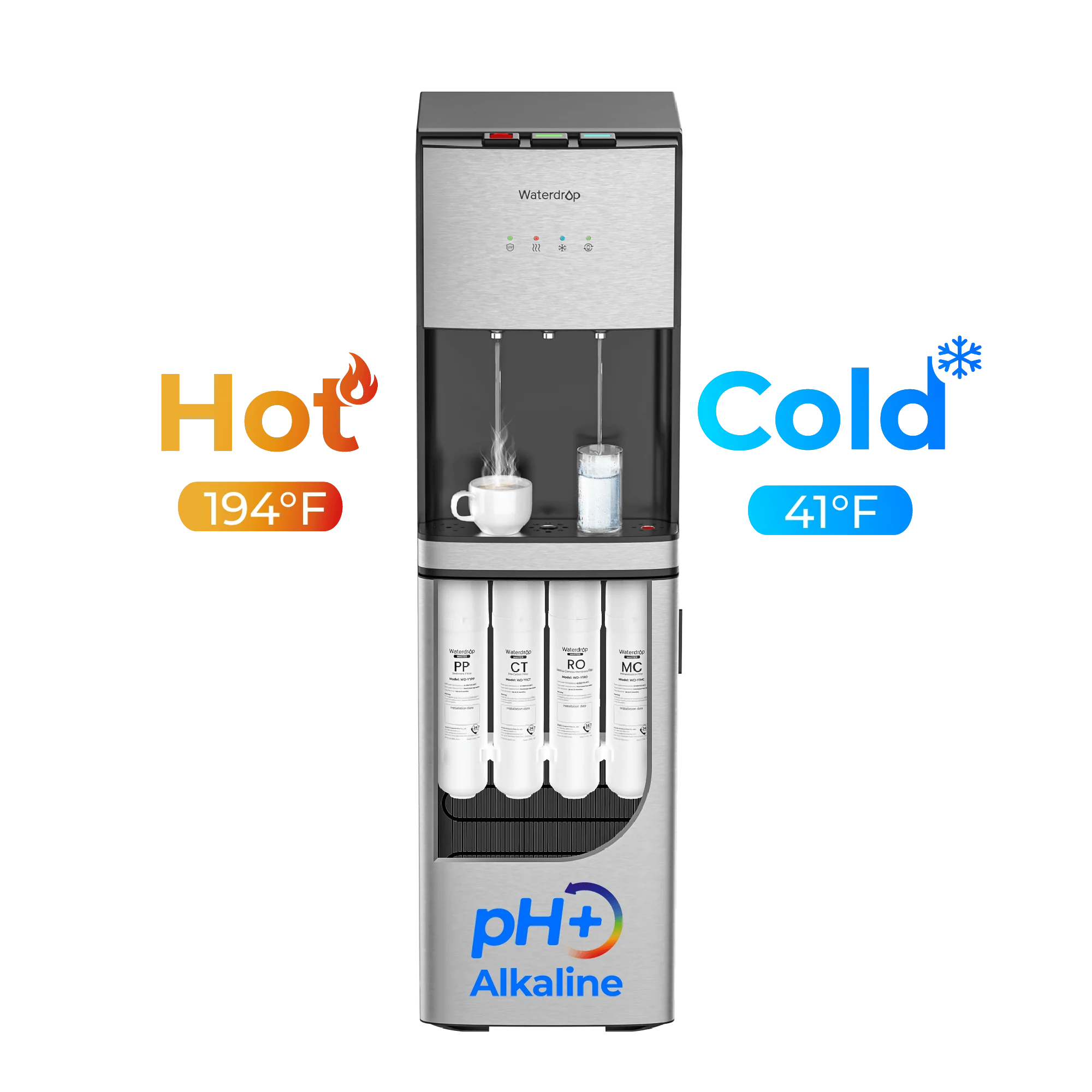 Waterdrop Y1CH Mineral Reverse Osmosis Bottleless Water Cooler, Silver
Waterdrop Y1CH Mineral Reverse Osmosis Bottleless Water Cooler, Silver
$589.00El precio original era: $589.00.$469.00El precio actual es: $469.00. -
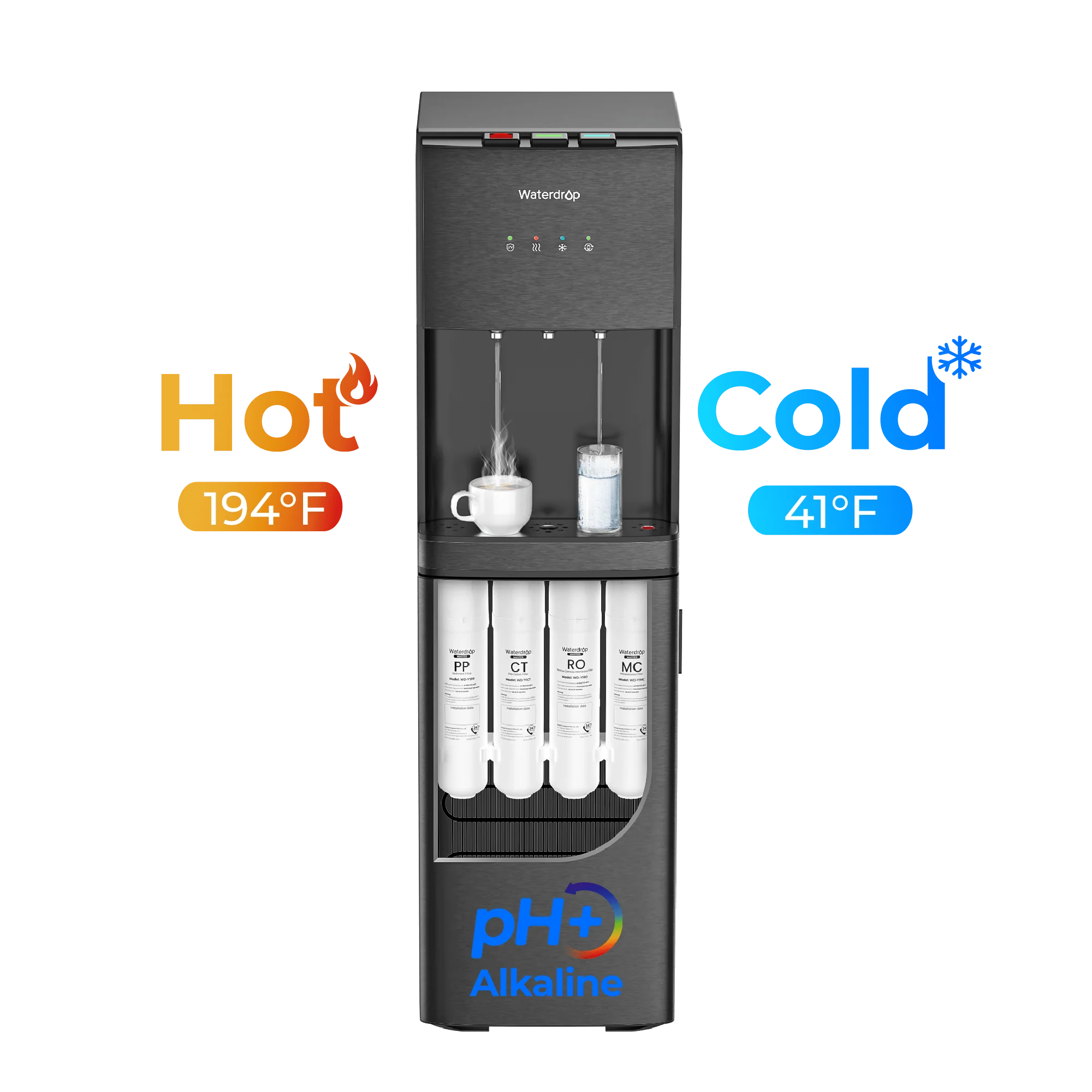 Waterdrop Y1CH Mineral Reverse Osmosis Bottleless Water Cooler, Black
$599.00
Waterdrop Y1CH Mineral Reverse Osmosis Bottleless Water Cooler, Black
$599.00
-
 Waterdrop Y1CH Reverse Osmosis Bottleless Water Cooler, Silver
$549.00
Waterdrop Y1CH Reverse Osmosis Bottleless Water Cooler, Silver
$549.00
-
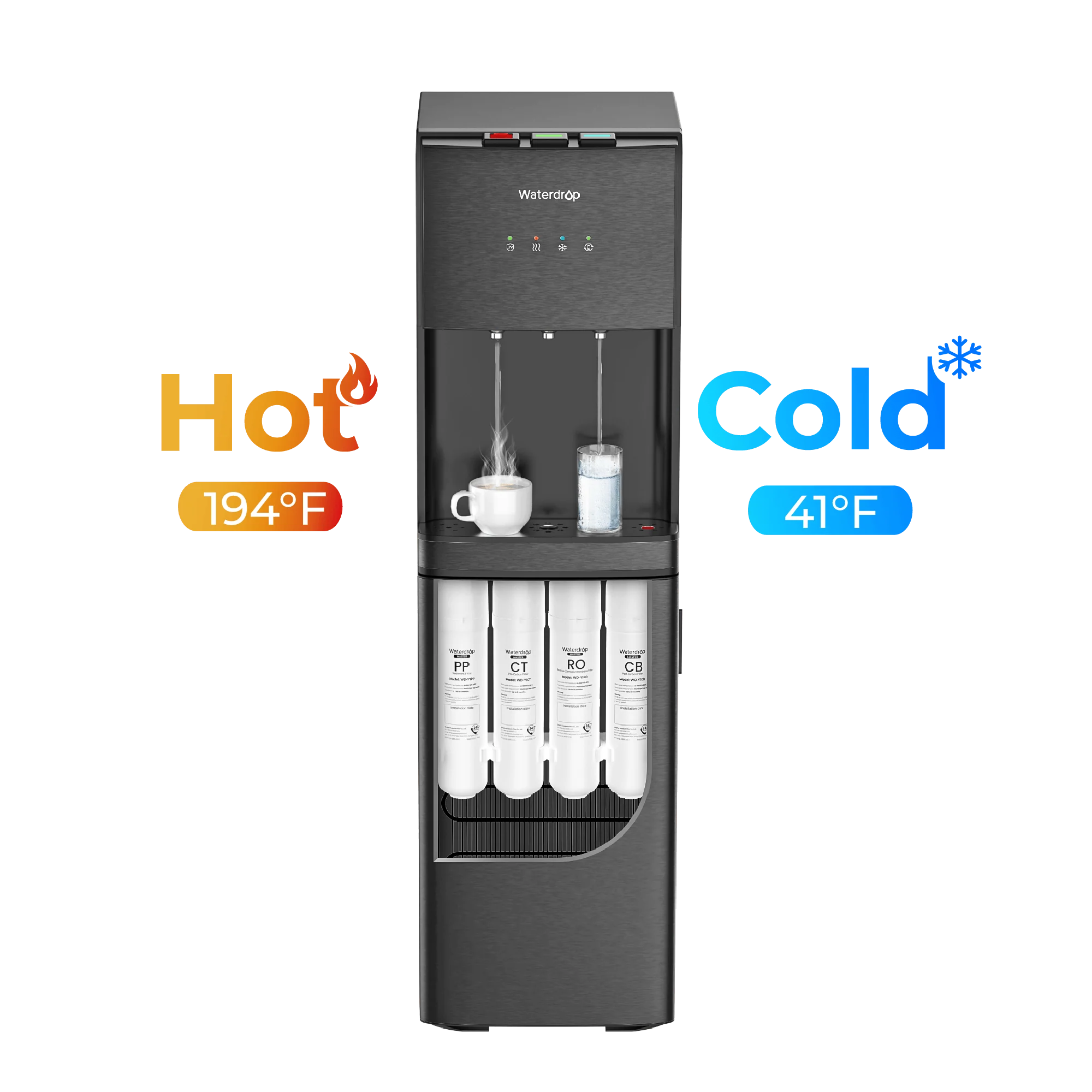 Waterdrop Y1CH Reverse Osmosis Bottleless Water Cooler, Black
$559.00
Waterdrop Y1CH Reverse Osmosis Bottleless Water Cooler, Black
$559.00
-
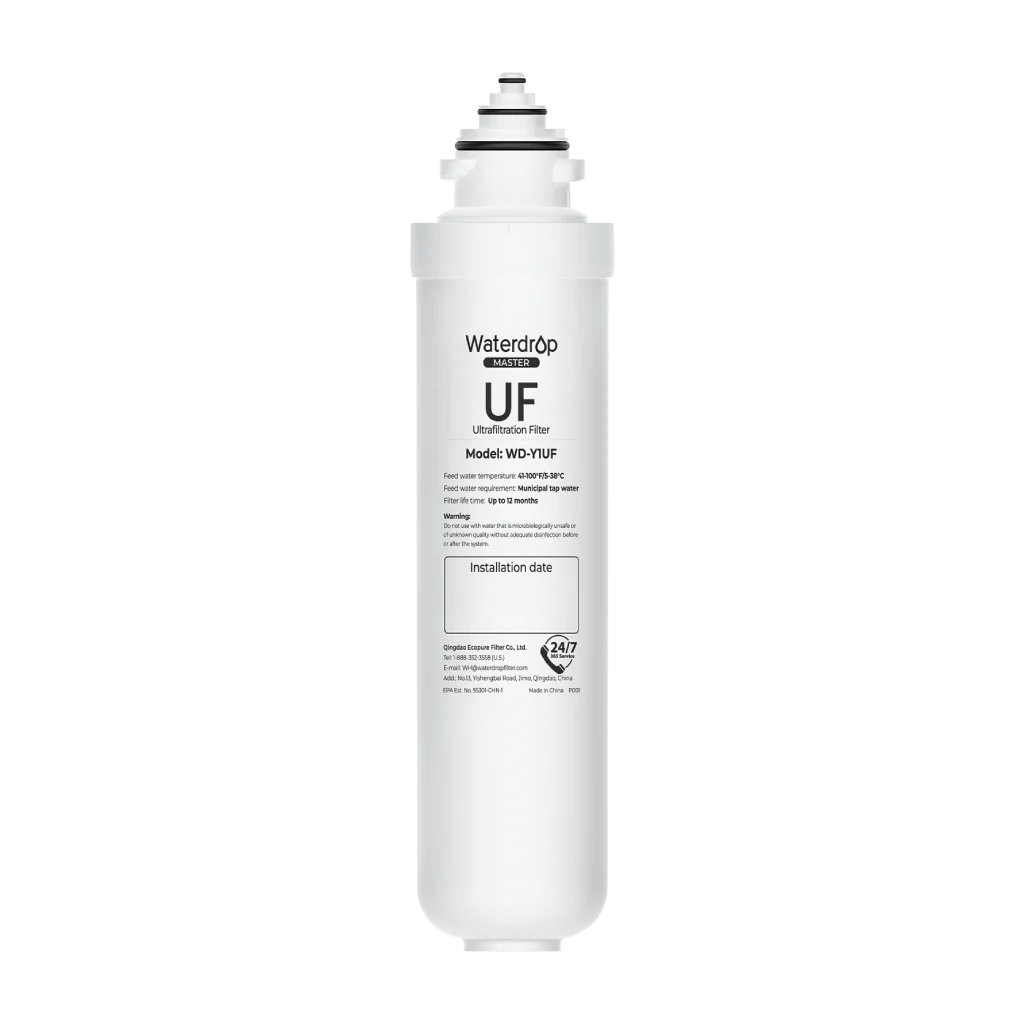 Y1UF Ultrafiltration Filter Replacement For Y1CH Ultrafiltration Bottleless Water Cooler
$49.99
Y1UF Ultrafiltration Filter Replacement For Y1CH Ultrafiltration Bottleless Water Cooler
$49.99
-
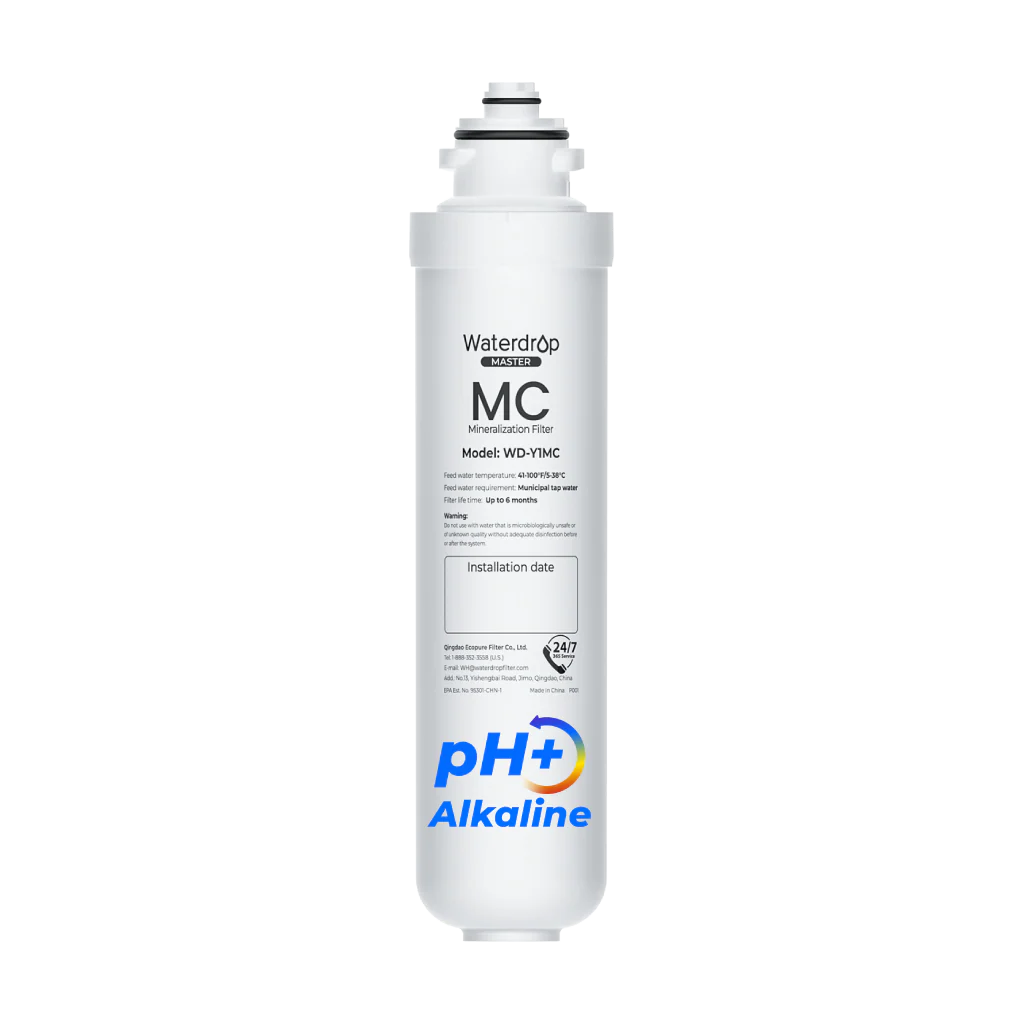 Y1MC Mineral Filter Replacement For Y1CH Mineral RO Bottleless Water Cooler
$39.99
Y1MC Mineral Filter Replacement For Y1CH Mineral RO Bottleless Water Cooler
$39.99
-
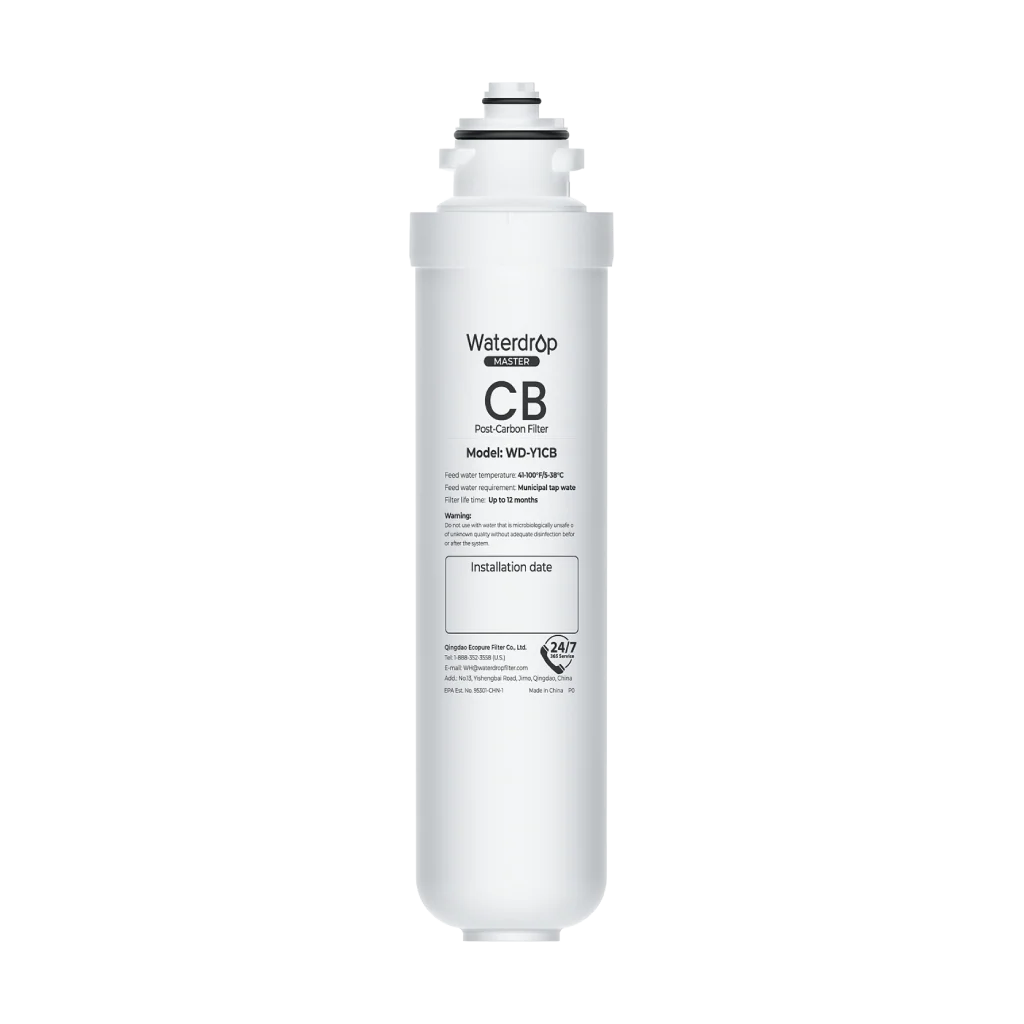 Y1CB Filter Replacement For Y1CH Bottleless Water Cooler
$29.99
Y1CB Filter Replacement For Y1CH Bottleless Water Cooler
$29.99
-
 Y1PC Filter Replacement For Y1CH Bottleless Water Cooler
$49.99
Y1PC Filter Replacement For Y1CH Bottleless Water Cooler
$49.99
-
- Whole House
Water Softener System
-
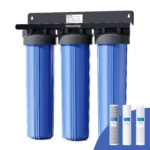 Waterdrop 3-Stage Whole House Water Filter System | Reduce Iron & Manganese
Waterdrop 3-Stage Whole House Water Filter System | Reduce Iron & Manganese
$419.99El precio original era: $419.99.$329.99El precio actual es: $329.99. -
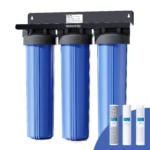 Waterdrop 3-Stage Whole House Water Filter System with Carbon Filter & Sediment Filter
Waterdrop 3-Stage Whole House Water Filter System with Carbon Filter & Sediment Filter
$369.99El precio original era: $369.99.$269.99El precio actual es: $269.99. -
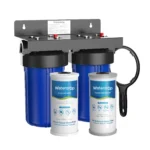 Waterdrop 2-Stage Whole House Water Filter System Reduce Iron&Manganese
Waterdrop 2-Stage Whole House Water Filter System Reduce Iron&Manganese
$199.99El precio original era: $199.99.$154.99El precio actual es: $154.99. -
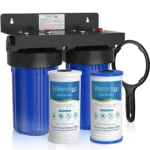 Waterdrop WHF21-PG 5 Micron 2-Stage Whole House Water Filtration System
Waterdrop WHF21-PG 5 Micron 2-Stage Whole House Water Filtration System
$164.99El precio original era: $164.99.$119.99El precio actual es: $119.99.
-
- Beauty Filters
Featured
-
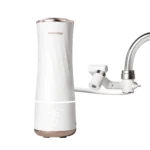 Waterdrop Skincare Face Washer With Water Filter Faucet
Waterdrop Skincare Face Washer With Water Filter Faucet
$299.00El precio original era: $299.00.$199.00El precio actual es: $199.00. -
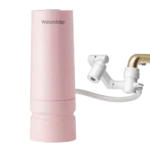 Waterdrop Lite Skincare Face Washer With Water Filter Faucet BFC3
$189.99
Waterdrop Lite Skincare Face Washer With Water Filter Faucet BFC3
$189.99
-
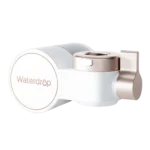 Waterdrop BFT1 Soft Water Skincare Faucet Water Filter
Waterdrop BFT1 Soft Water Skincare Faucet Water Filter
$69.99El precio original era: $69.99.$59.99El precio actual es: $59.99. -
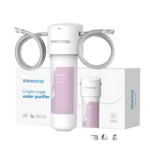 Waterdrop Skincare Water Softening System BFU2 - Softens Skin & Hair
Waterdrop Skincare Water Softening System BFU2 - Softens Skin & Hair
$79.99El precio original era: $79.99.$59.99El precio actual es: $59.99.
-
- More Filters
- Replacements
Featured Products
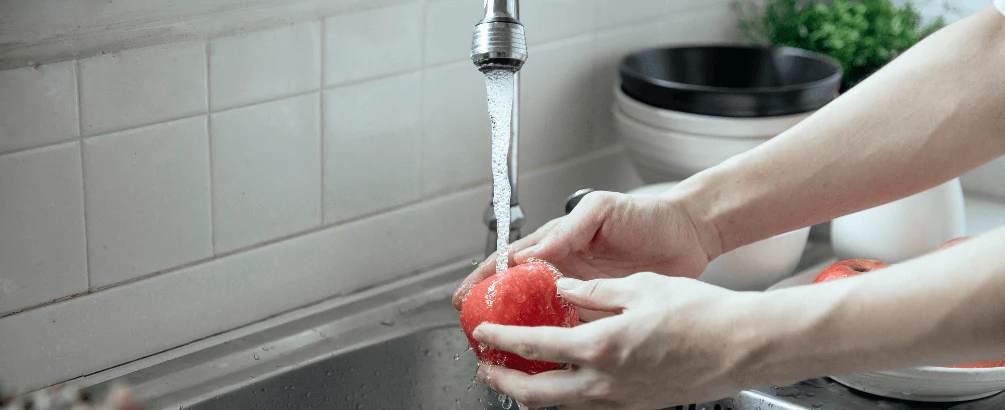
The debate between hard and soft water is important when it comes to home water supplies, as each type can affect health, pipe, and equipment efficiency. This article takes an in-depth look at the pros and cons of both to help you decide which one is best for your family’s needs.
What Is Hard Water?
Hard water is water that contains high concentrations of calcium and magnesium minerals. Minerals can cause scale buildup, damage appliances and shorten their service life. Although hard water is not harmful to health and can provide beneficial minerals to the diet, the inconvenience it causes in the home environment can lead people to use water softeners to reduce its hardness.

What Is Soft Water?
Soft water is water with a lower concentration of calcium and magnesium ions. Compared to hard water, which contains minerals, soft water does not react with soap to produce soap scum, so it cleans better and also extends the life of household appliances. Soft water is also gentler on skin and hair. People often use processes such as ion exchange to convert hard water into soft water to avoid the negative effects of hard water.
Hard Water vs. Soft Water
What is the difference between hard water and soft water? Their various factors need to be considered in many ways. Here are the differences between hard water and soft water:
Health Implications
Hard water provides essential minerals like calcium and magnesium, which are beneficial for bone health and metabolic functions. While some research suggests that drinking hard water may be linked to lower cardiovascular disease mortality, these findings are not definitive. Additionally, the mineral deposits left by hard water can irritate sensitive skin or worsen conditions such as eczema.
Soft water although lacking the beneficial minerals found in hard water, is suitable for people with sensitive skin because it is less likely to irritate and can leave the skin feeling softer. It’s worth noting that, depending on the type of water softener used, softened water may increase sodium content, which may be a concern for those on a sodium-restricted diet.

Maintenance and Appliance Lifespan
Hard water contributes to limescale buildup in pipes and heating systems, leading to blockages that decrease heating efficiency and increase the need for frequent repairs and maintenance of appliances like washing machines, dishwashers, and boilers. Additionally, the scale buildup from hard water can cause appliances to work harder, resulting in increased energy consumption.
Soft water prevents the formation of limescale, thus maintaining the efficiency and longevity of household appliances. This reduces necessary repairs and scale accumulation, helping to increase energy efficiency and lower utility bills.
Cleaning and Soap Efficiency
Hard water requires more detergent to clean effectively because it reacts with soap, causing soap scum to form. Additionally, it can leave a stain and filmy residue on dishes, glassware, surfaces, and skin and hair. The mineral residue will cause clothes washed in hard water to look dirty and rough.
Soft water enhances the effectiveness of soaps and detergents, reducing the amount needed for cleaning and eliminating problems like soap scum and mineral stains. This results in cleaner dishes and laundry, and clothes that feel softer and more vibrant. Additionally, bathing in soft water often leaves skin and hair feeling smoother and softer.
Soft water enhances the effectiveness of soaps and detergents, reducing the amount needed for cleaning and eliminating problems like soap scum and mineral stains. This results in cleaner dishes and laundry, and clothes that feel softer and more vibrant. Additionally, bathing in soft water often leaves skin and hair feeling smoother and softer.

Environmental Impact
Hard water requires the use of more soaps and detergents, will lead to increased chemical runoff in the environment, increases energy consumption due to scale buildup in appliances, and results in a larger carbon footprint.
The use of salt-based water softeners introduces excess sodium into wastewater, potentially harming the aquatic environment, while their ability to reduce soap and detergent use reduces chemical contamination. Soft water systems can also result in wasted water during the regeneration cycle.
Both types of water above have their advantages and disadvantages, depending on your needs. For those concerned about the effects of hard water and added sodium from softeners, there are options to install a drinking water reverse osmosis system or use a different water softening method (such as using potassium instead of sodium).
The use of salt-based water softeners introduces excess sodium into wastewater, potentially harming the aquatic environment, while their ability to reduce soap and detergent use reduces chemical contamination. Soft water systems can also result in wasted water during the regeneration cycle.
Both types of water above have their advantages and disadvantages, depending on your needs. For those concerned about the effects of hard water and added sodium from softeners, there are options to install a drinking water reverse osmosis system or use a different water softening method (such as using potassium instead of sodium).




